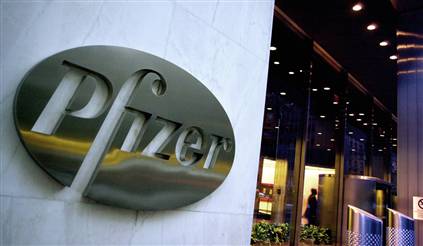Pfizer Pitches in with Smoking Cessation Clinics
 Pfizer the pharmaceutical major has tied up with Max Healthcare to help smokers quit and plans on opening 600 smoking cessation clinics by the end of 2010 in and around New Delhi. India has 120 million tobacco users and the cessation clinics are much needed.
Pfizer the pharmaceutical major has tied up with Max Healthcare to help smokers quit and plans on opening 600 smoking cessation clinics by the end of 2010 in and around New Delhi. India has 120 million tobacco users and the cessation clinics are much needed.
Although the Government run clinics try to counsel smokers who are trying to quit smoking they do not provide any cessation products due to their high prices. The Union Health Minister, Dr Anbumani Ramadoss, recently said the Centre has a plan for about 600 smoking-cessation clinics in districts and medical colleges, without indicating a time frame. The Centre is in the midst of talks with Pfizer regarding a couple of pilot studies according to a Union Health Ministry official.
"The government plans to set up smoking cessation clinics across the country but it recognises the role for the private sector to offer additional support," Alaster Allum, Regional Medical Affairs Manager, Pfizer Asia, said.
Under the tie up, Max Healthcare will have smoking cessation clinics in all eight centres it runs in Delhi and the NCR and Pfizer is also looking at private practitioners and other hospitals across the country for additional tie-ups a company official said.
The officials said Pfizer will use its tobacco-cessation prescription drug, Champix, to help smokers quit with complimentary therapy to assist patients seeking to do away with nicotine dependence. They will provide literature and other written material to assist people who want to quit smoking and have already tied up with 150 practitioners, they said.
Dr Sandeep Budhiraja of Max Healthcare said the programme at Max’s cessation centres includes five physician visits and 11 visits from specialists including psychologists and psychiatrists for counseling, monitoring and treatment using Champix. The programme cost is about Rs 13,000 and Champix for three months costs the smoker Rs 9,000.
Pfizer is already working with three Max Healthcare smoking cessation centres in Delhi and Dr Yusuf Matcheswalla's de-addiction centre at the Masina Hospital in South Mumbai.
Dr Srinath Reddy of Public Health Foundation of India said the public health initiative was commendable but the cost factor of the cessation products was steep and must be reduced for affordability by the consumer.
Dr P.C. Gupta, Director of Healis Sekhsaria Institute for Public Health said counseling was effective and delivered results but he also felt the price of the cessation products was high.